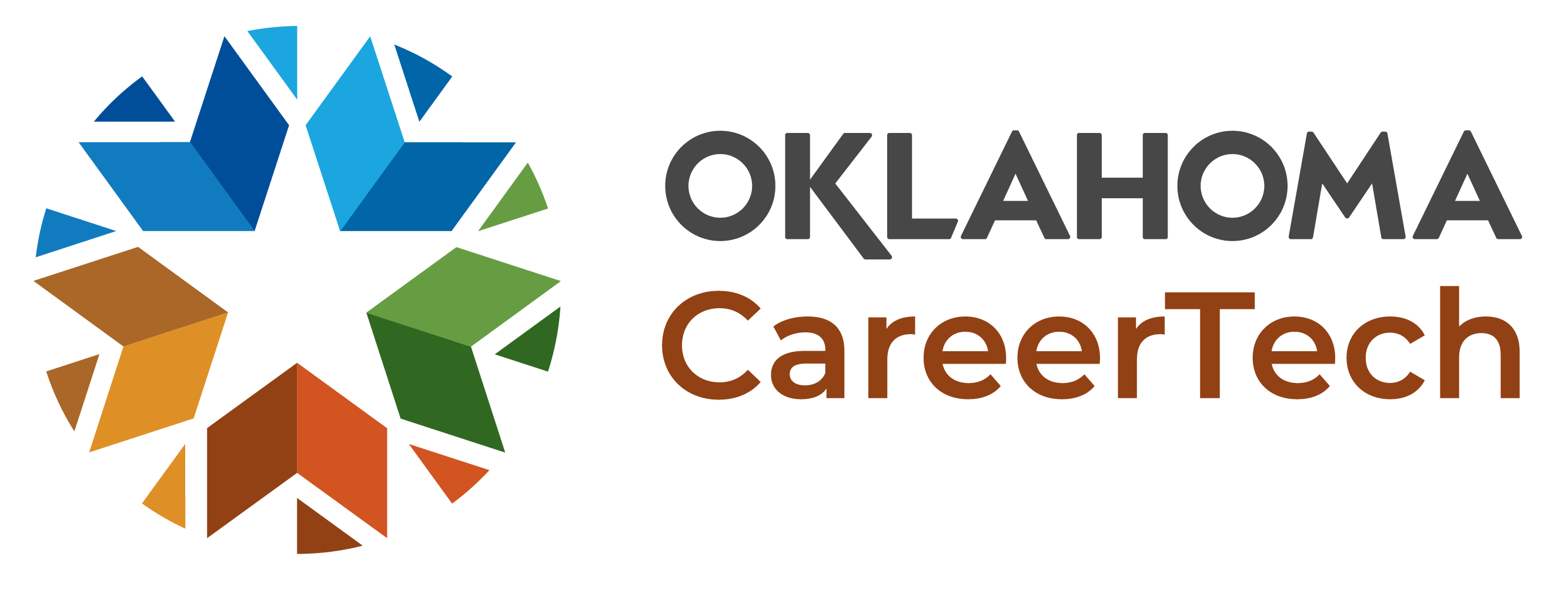Education Resources
Information related to education benefits and education-related questions.
Education & Training
Use your GI Bill at your local tech center. The Post 9/11 GI Bill has opened new opportunities for education and training for veterans' that were non-existent in the past. You can now use your GI Bill to pay for training in non-college degree programs at your local technology center.
Non-college degree training includes programs that produce career-specific diploma or professional certifications. Training is designed to advance your skills, especially in relation to your present or future job. Non-college degree programs include training for jobs that are based on manual or practical activities related to a specific trade, occupation or vocation. They do not normally include training for a specific profession.
Examples of non-college degree training are CareerTech programs such as the following:
- HVAC Certification.
- Truck Driving.
- EMT Certification.
- Barber/Beautician School.
For many veterans, the Montgomery GI Bill is the most significant benefit for their service. Depending on how many years served, veterans are eligible for up to 36 months of education payments. The GI Bill can pay for college or technical school, apprenticeship, certification and on-the-job training. Some veterans may also be eligible for vocational rehabilitation, which combines education with an employment goal. For more on the GI Bill, check out Education After Your Service.
Vocational Rehabilitation
Disabled veterans may also be eligible for vocational rehabilitation through the VA. This program helps veterans identify work they can perform despite their injuries and the education needed. It then pays for their education and helps them find employment. For more on vocational rehabilitation, visit http://www.vba.va.gov/bln/vre/.
Career Focus: After Military Service
Oklahoma CareerTech's Curriculum and Instructional Materials Center developed this guide for veterans who are leaving the military and transitioning to a civilian career. It walks veterans through five steps in making this transition: self-assessment, exploring career interests and options, filling a skills gap, finding and applying for a job and managing the career transition.
Rand Corporation Veteran Resources
These Rand Corporation resources are based on research conducted with the Jobs Mission initiative or sponsored by the Transition to Veterans Program Office of the Office of the Secretary of Defense.
Permission is given to duplicate these electronic documents for personal use only, as long as the documents are unaltered and complete. Copies may not be duplicated for commercial purposes. Unauthorized posting of Rand PDFs to a non-Rand website is prohibited. Rand PDFs are protected under copyright law. For information on reprint and linking permissions, please visit the Rand permissions page.
The Rand Corporation is a nonprofit institution that helps improve policy- and decision-making through research and analysis. Rand’s publications do not necessarily reflect the opinions of its research clients and sponsors.


